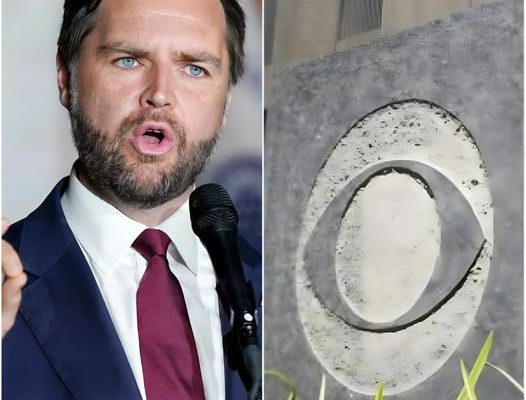In a move that has left media executives scrambling and advertisers seeking refuge, Ohio Sen. J.D. Vance’s call for a boycott of CBS has officially resulted in the loss of six major sponsors. What began as a post-debate complaint about biased moderators has turned into a full-scale corporate retreat, leaving CBS with gaping holes in its advertising offering and an uncertain future.
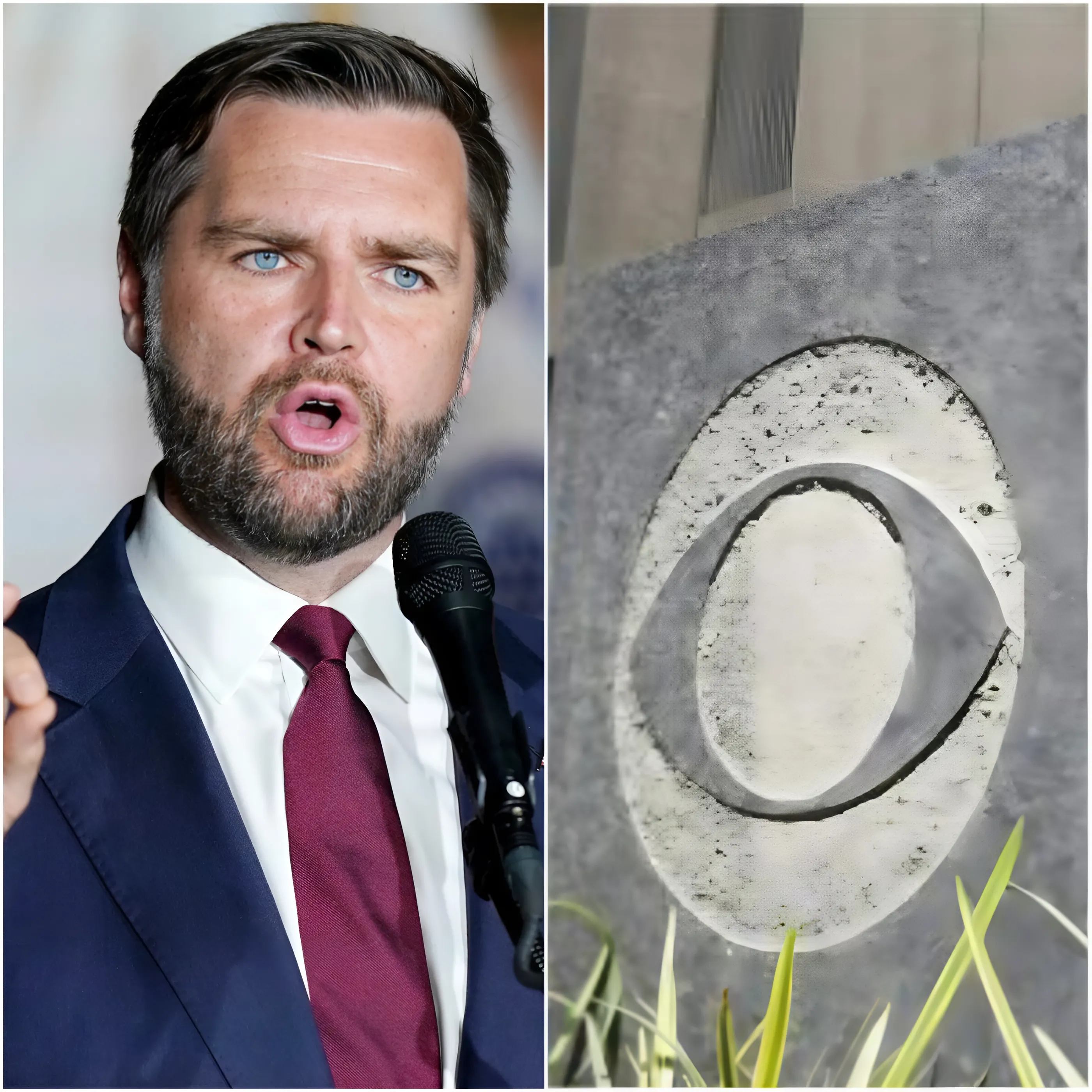
It all started when Vance, feeling in the crosshairs of CBS moderators during the recent vice presidential debate, urged his supporters to boycott the network. Accusing CBS of acting more like “Harris campaign strategists” than impartial journalists, Vance wasted no time in mobilizing his base. The call to action went viral almost instantly, and the hashtag #BoycottCBS trended for days on social media platforms. The result? Six of CBS’s top advertisers, including Ford, Geico and Amazon, have canceled the contract, leaving the network reeling.
The debate between J.D. Vance and Democratic candidate Tim Walz was supposed to be a measured discussion of political issues. Instead, it became a battleground between Vance and moderators, who repeatedly fact-checked his statements, a move Vance has since called “excessive and biased.”
“It was like a trap,” Vance said at a rally shortly after the debate. “Every time I opened my mouth, the moderators were there to ‘fact-check.’ But when Walz spouted his nonsense, they simply nodded as if he were preaching the gospel. CBS is no longer a news network. It’s a propaganda machine, and we’ve had enough.”
Vance’s indignation did not remain only on the stage of the debate, but extended to the public sphere, where he called on his supporters to take a stand. “Don’t just change the channel,” Vance said. “Change the whole system. Hit them where it hurts most: their advertisers. They’re sinking, folks!”
And so it was. Within days, six major advertisers publicly cut ties with CBS, leaving network executives wondering if its prime-time programming would be the next to be removed.
The first to announce its departure from CBS was Geico, which in a brief statement confirmed that it was withdrawing all its advertisements indefinitely. “We strive to reach diverse audiences across the country, but after receiving substantial feedback from our clients, we have decided to discontinue our advertising on CBS.”
Ford did not take long to make that announcement and announced its decision through a concise post on social networks: “Just because it is resistant does not mean that it is made to tolerate prejudice. We’re leaving.”
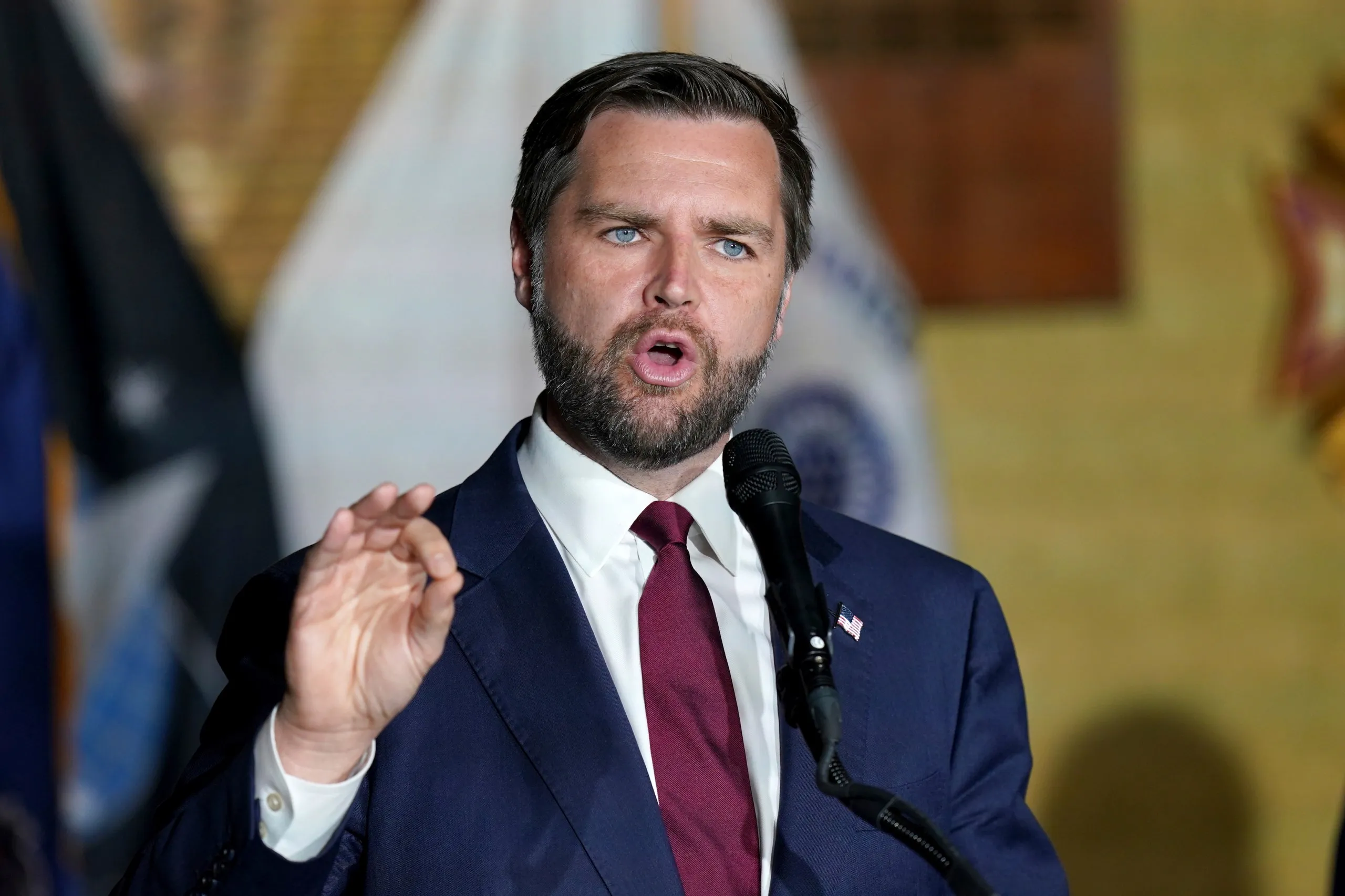
Amazon, intuyendo los vientos de la división política, no tardó en sumarse al éxodo. En un tono más corporativo, afirmó: “Como empresa que valora todas las voces, hemos tomado la difícil decisión de discontinuar nuestra publicidad en CBS hasta nuevo aviso”.
Pepsi , Liberty Mutual y Subway también retiraron sus anuncios, alegando preocupaciones similares sobre la reacción negativa del público. Para CBS, fue un golpe doble que dejó a la cadena tambaleándose.
“No esperábamos este nivel de repercusión”, admitió un miembro de la CBS que habló de forma anónima. “Comenzó como un debate, pero ahora es una revuelta de anunciantes a gran escala. Este es el peor escenario posible para cualquier cadena. Los anunciantes son nuestro sustento”.
Animado por el éxito de su llamado al boicot, JD Vance no ha dudado en celebrar lo que considera una victoria para la libertad de expresión y un golpe aplastante para la parcialidad de los medios. En un mitin abarrotado en Ohio, Vance se atribuyó con regocijo el mérito de lo que llamó la “rebelión de los anunciantes”.
“¡Miren lo que pasa cuando nos enfrentamos a las élites de los medios!”, gritó Vance ante una multitud que lo vitoreaba. “Hemos enviado un mensaje a la CBS: si no respetan a la gente, la gente buscará su dinero en otra parte. El pueblo estadounidense está harto de estas cadenas tendenciosas. Este es el principio de su fin”.
Los partidarios de Vance, muchos de los cuales creían desde hace tiempo que los grandes medios de comunicación estaban trabajando en contra de los valores conservadores, han aclamado el boicot como un punto de inflexión en las guerras culturales. “Por fin tenemos pruebas de que podemos marcar una diferencia”, dijo un partidario en un mitin de Vance. “Ya no pueden ignorarnos. Nos necesitan más de lo que nosotros los necesitamos a ellos”.
El impulso del boicot ha dado pie incluso a conversaciones sobre la posibilidad de ampliar el movimiento a otras cadenas. “¿Por qué detenerse en CBS?”, preguntó un comentarista conservador en X. “Llevemos esta lucha a todas las cadenas que no juegan limpio”.
Mientras el boicot continúa, CBS se esfuerza por gestionar las consecuencias. En una declaración publicada poco después del éxodo de anunciantes, CBS defendió a sus moderadores de debates y rechazó las acusaciones de parcialidad.
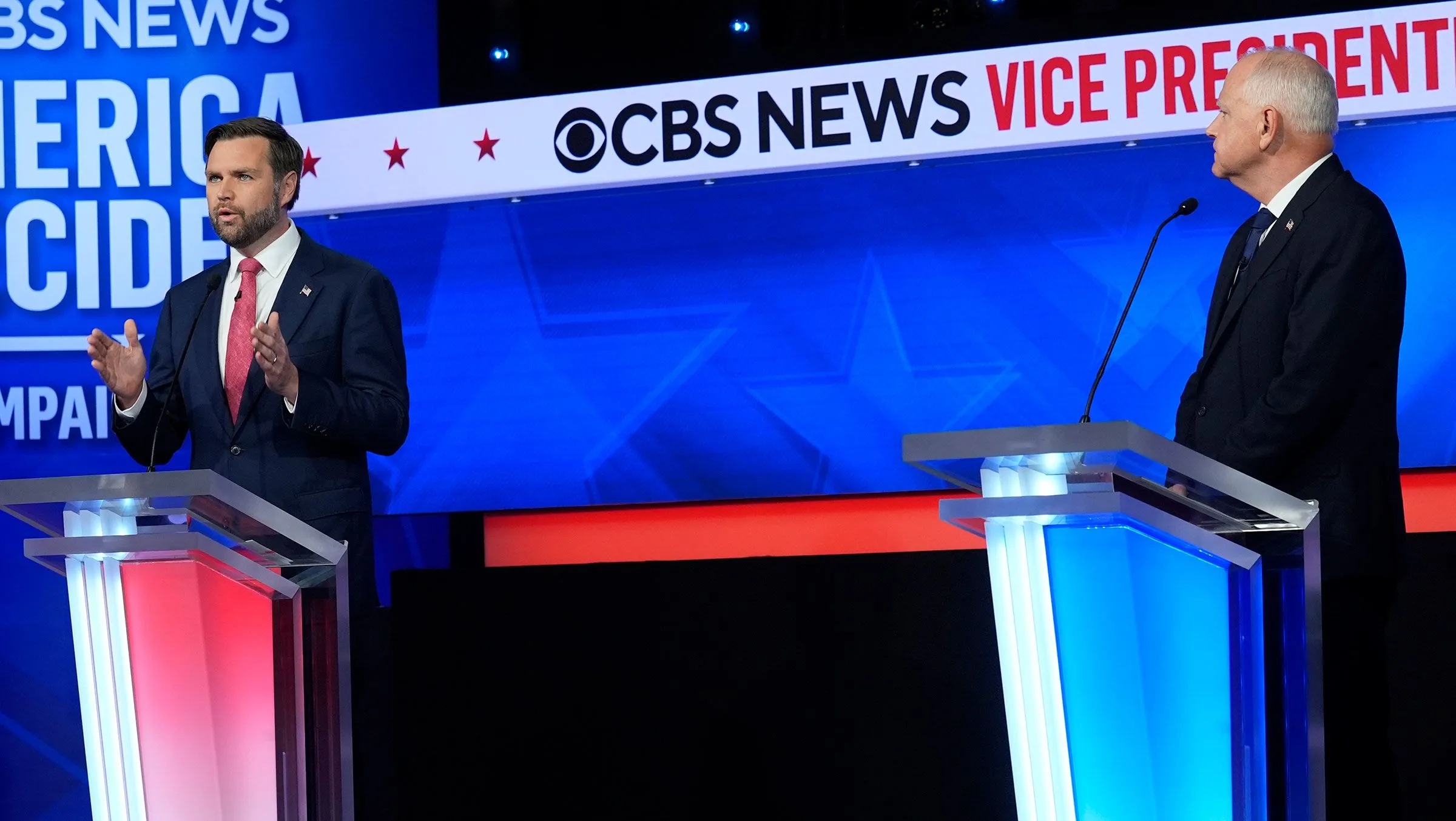
“Respaldamos la integridad de nuestros moderadores de debates y su compromiso con el periodismo justo”, se lee en el comunicado de la cadena. “CBS siempre ha proporcionado una plataforma para un debate político equilibrado y reflexivo. Lamentamos que algunos espectadores piensen de manera diferente, pero no daremos marcha atrás en nuestros estándares periodísticos”.
A pesar de su postura firme, está claro que CBS está sintiendo la presión. Tras bastidores, se dice que la cadena está trabajando para arreglar las cosas con los anunciantes y mitigar el daño. Hay rumores de que los ejecutivos de CBS están considerando reducir su cobertura política futura, al menos hasta que terminen las elecciones, para evitar más reacciones negativas.
“No podemos permitirnos perder más anunciantes”, admitió el informante anónimo de CBS. “Lo que está en juego es el resultado final”.
Aunque los boicots políticos suelen ser considerados como maniobras de relaciones públicas pasajeras, el boicot a CBS encabezado por Vance está teniendo consecuencias financieras reales. Con seis grandes anunciantes que ya se han retirado, es probable que la cadena se enfrente a millones de dólares en ingresos perdidos y a la posibilidad de que se sumen más anunciantes.
Los expertos afirman que el golpe financiero podría tener consecuencias a largo plazo para la cadena. “Cuando los anunciantes se retiran, no se trata sólo de la pérdida inmediata de ingresos”, dijo la analista de medios Karen Winters. “También se trata del daño a la reputación a largo plazo. Otras marcas podrían ahora considerar que anunciar en CBS es demasiado arriesgado políticamente, y eso podría perjudicar sus resultados en los próximos años”.
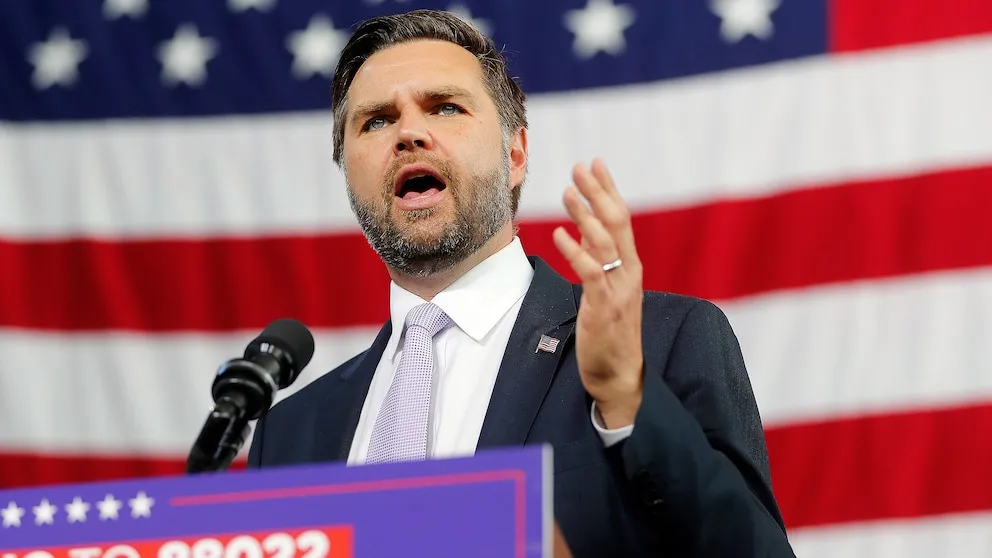
As for J.D. Vance, his boycott victory has certainly given his campaign a boost. Now that the spotlight is firmly on him, Vance will likely continue to use his fight against CBS as a rallying cry for his supporters and a warning to any other network that might deny him.
As CBS grapples with the fallout from the boycott, the question everyone is asking is whether the network will be able to recover. While CBS has weathered storms in the past, losing six major advertisers in a single week is no small feat.
If the boycott continues to gain momentum, CBS may be forced to completely rethink its political coverage strategy. Whether or not they can salvage their relationships with advertisers remains to be seen, but one thing is clear: JD Vance has put a stone on the grill of its well-oiled machinery, and it will take more than just a PR statement to fix it.
For now, CBS is in damage control mode. But as more advertisers consider jumping ship, the network may find that Vance’s rallying cry of “They’re sinking!” is more than just bluster.
